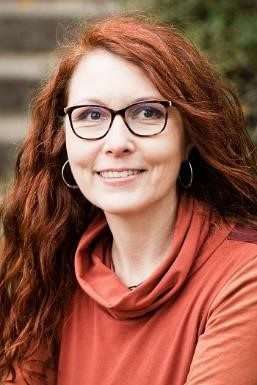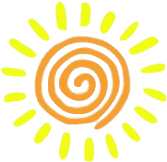
Orsolya Lelkes, MSc PhD
Orsolya Lelkes, MSc PhD is an economist, social researcher, certified solution-focused coach and psychodrama director.
Currently she works as a trainer of the Psychodrama Akademie Österreich, ÖAGG, co-leading the “Psychodrama-Changemaker Kurzlehrgang”, and is engaged in a number of interdisciplinary research projects on participatory democracy, ecological sustainability and social justice. She has been researching the subject of well-being and happiness for decades. Her recent book “Sustainable Hedonism. A Thriving Life That Does Not Cost the Earth” was published by
Bristol University Press in 2021. The German edition (by Oekom Verlag) is currently under way.
Earlier, she held the position of Deputy Director, European Centre for Social Welfare Policy and Research, Vienna, affiliated to the United Nations, and she was the Head of Economic Research Division at the Hungarian Ministry of Finance.
She holds a PhD in Social Policy from the London School of Economics.
Laboratory of flourishing life in a crisis-ridden world: SF meets psychodrama
Brief summary: We will explore how we can live and co-create a “flourishing life” for ourselves and for all. The workshop integrates solution-focused coaching with experiential learning, using the method of psychodrama.
Context: Our world is ridden by many crisis phenomena, including ecological destruction and a dooming climate catastrophe reminding us of the finite resources of our Earth. Yet, we long for joy, for meaning, for a sense of being at home in this world. Can we be happy without cutting ourselves off from the rest of the world, becoming an ostrich? Can we contribute to a better world in a meaningful way without being overburdened, carrying the weight of the world on our shoulders like the Greek God Atlas? Does it make sense to speak of happiness and good life today?
The science of positive psychology is booming, as well as the popular culture and business “selling” happiness. In parallel, the so-called “well-being economy” is gaining momentum, especially in the UK, arguing that economics should ultimately measure its success in terms of well-being of people, not GDP or profits.
These efforts signal that we need new, positive collective narratives that are authentic, meaningful and can inspire us. And we need to find our personal pathways, not only intellectually, but also emotionally and embedded in our lives, in our everyday actions. Others can inspire and encourage us in our journey: it is so important to know that we are not alone in this!
Process and method: The workshop will start with a short introduction on what “flourishing life” is and why it could inspire us in our quest for a happy life that also cares about others and the Earth. It will be followed by an action-oriented, embodied exploration of the theme in the “Laboratory of Flourishing Life”. The Laboratory of Flourishing Life integrates elements of the psychodramatic method with a solution-focused approach.
The psychodrama method is a recognized approach to psychotherapy and counselling; but also effectively used in education and training, and academic mentoring at universities; and it is a robust form of leadership training. In my view, psychodrama is a brilliant method bound by its unfortunate name. Although the founder Jacob Levy Moreno derived the name from the Greek words soul (psyche) and action (drama), referring to the action of the soul and the theatrical genre, both the words of psycho and drama have connotations that can be alarming today.
In the Laboratory of Flourishing Life, all forces come to life that are necessary for a flourishing life and connect us to our joyful, creative state of being. The world we long for can take shape. We will be able to relate to our deepest aspirations, clarify what is really important to us. We do not simply speak or think about these things, but rather explore them with our bodies, emotions, intuitions. There is a safe place to playfully explore ourselves and to interact with others.
During the workshop, participants can explore their own inner attitudes, values and motivation with respect to their own flourishing selves as well as a flourishing life for all.
You are invited for a creative exploration to
- create your “best hopes”, your vision of a flourishing life;
- feel vitalized by your strengths and competences for creating such a life.
No prior knowledge or special skills are needed. Paradoxically, the method works best when someone does not want to perform, meeting some perceived expectation, but is willing to show themselves, authentically, as they are.
Underlying Theory: The theoretical underpinning of the work is outlined in my book “Sustainable Hedonism. A Thriving Life That Does Not Cost the Earth” published by Bristol University Press in May 2021. The book explores the notion of a “good life” based on ancient Greek philosophy, modern psychology, social psychology and psychodrama. The book brings together three strands (environmental, social, individual), but it does not stop at just outlining the theory, but also encourages a process of self-reflection and experiential learning.
Flourishing life, based on Aristotle and modern psychological theories, provides a useful conceptual basis for a “good life for all”, as it encompasses pleasure as well as virtue. In other words, we can “live well” and “do well”. We can cultivate our abilities to enjoy life, and can also take action for our “flourishing life”. Happiness is thus not selfish, not only an emotional state, and does not depend purely on luck and external circumstances, but rather, it is “the activityofthesoul”. Thebookshowsthatpsychodramacanbecomethe laboratory of the „flourishing life” and thus powerfully support personal and collective transformation in our crisis-ridden world.
Format: Workshop
Level: Introductory/Intermediate/Advanced
Maximum number of attendees: 20
